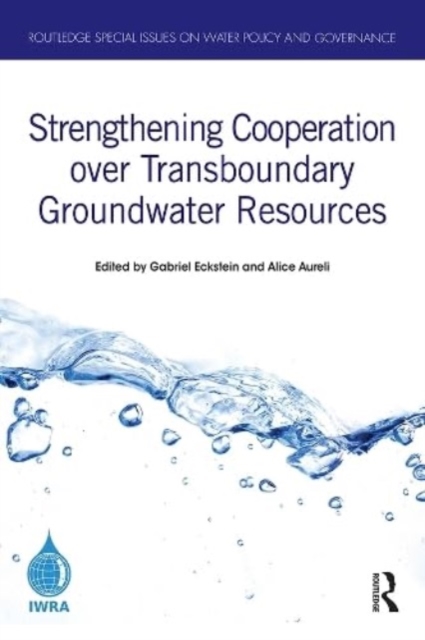
Strengthening Cooperation over Transboundary Groundwater Resources Paperback / softback
Edited by Gabriel (Texas A&M University, USA) Eckstein, Alice Aureli
Part of the Routledge Special Issues on Water Policy and Governance series
Paperback / softback
Description
Groundwater is humanity’s most vital supply of freshwater.
Freshwater resources contained in aquifer systems globally are two orders of magnitude greater than those found in all rivers, lakes, and other surface freshwaters combined.
Moreover, approximately one half of the world’s population today is dependent on groundwater for its basic needs. While these truisms are widely acknowledged, an additional reality is now recognized – many of these subsurface freshwater reservoirs are actually transboundary formations shared amongst two or more nations.
In fact, around 600 transboundary aquifers have been identified worldwide.
They underlie the territory of nearly every non-island nation and are found in both humid and arid environments.
Surprisingly, though, only a handful of transboundary aquifers worldwide are subject to any type of formal or informal international agreement. Transboundary groundwater resources are now receiving growing attention among the international community.
Questions are being raised about how they should be managed, allocated and protected, what rights aquifer riparians can enjoy, and what responsibilities these aquifer states might owe to neighbouring aquifer riparians.
This book considers all these various aspects of the management and regulation of transboundary groundwater resources.
It also presents case studies and explores recent efforts to engage the international community on best practices and global standards for governing transboundary aquifers.
As communities and nations continue to expand their reliance on these critical sources of freshwater, they will have to address such issues and develop governance regimes for these shared subsurface resources. The chapters in this book were originally published as a special issue of Water International.
Information
-
Out of stock
- Format:Paperback / softback
- Pages:162 pages
- Publisher:Taylor & Francis Ltd
- Publication Date:29/01/2024
- Category:
- ISBN:9780367673178
Information
-
Out of stock
- Format:Paperback / softback
- Pages:162 pages
- Publisher:Taylor & Francis Ltd
- Publication Date:29/01/2024
- Category:
- ISBN:9780367673178










